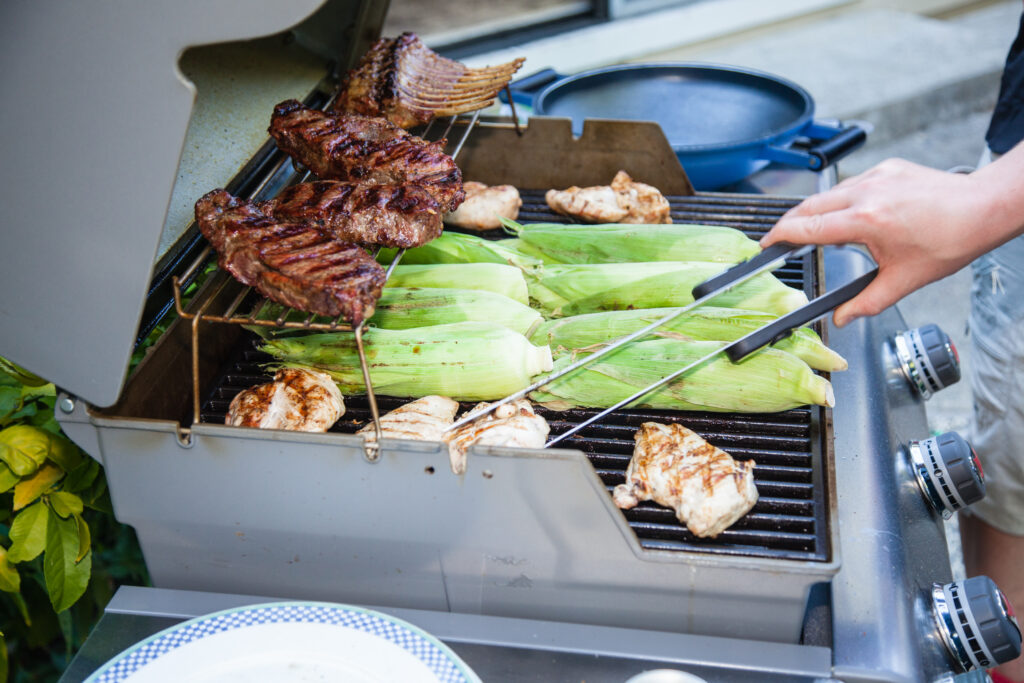
You can use propane throughout your home or cottage for clean-burning, efficient, energy. If you are thinking about converting to propane or already use it and have a concern, please review our propane FAQs.
Q) Where do I find my customer number
A) You can find your account number on your invoice or delivery slip, see an example here. Or call us for assistance.
Q) What should I do if my pilot light goes out?
A) You should get in touch with a qualified propane service technician to evaluate the appliance and relight the pilot light, which is a small, constantly burning flame inside the appliance that ignites the main burner. A pilot light that repeatedly goes out — or is difficult to light — may be signalling that there is a problem with the appliance or your propane system. Accidents and serious injuries can occur when customers attempt to fix a pilot light problem on their own.
Q) What If I smell gas?
A) If you think you smell propane in your home, camper, RV or in the area around any gas equipment, or if a gas alarm signals the presence of propane, you should immediately follow these suggestions:
- Turn off the propane supply at the tank(s).
- Extinguish all smoking materials and any other open flames or sources of ignition.
- Open windows and doors to air out the premises.
- Exit the building until a qualified technician has determined that it is safe to re-enter.
Q) What is propane?
A) Propane is a hydrocarbon (C3H8) and is sometimes referred to as liquefied petroleum gas, LP-gas, or LPG. Propane is produced from both natural gas processing and crude-oil refining. It’s non-toxic, colourless and virtually odourless. As with natural gas, an identifying odour is added so the gas can be readily detected. Read More.
Q) Is propane safe for the environment?
A) Yes. Propane is a non-toxic fuel that doesn’t contaminate aquifers or soil. It is a clean-burning energy source that is low carbon, emits virtually no air pollutants. Professionals safely transport and use propane across Canada every day. Compared to other fuels, propane’s utilization helps to improve air quality, reduce GHG emissions and protect the environment.
Q) How can I recognize a propane leak in my home or cottage?
A) Propane has a strong, unpleasant smell, like rotten eggs, a skunk’s spray, or a dead animal. Propane manufacturers add the smell deliberately to help alert customers to propane leaks, which can create a safety hazard.
Q) What should I do if there’s a problem with a propane appliance?
A) Never modify or try to repair a propane appliance’s valves, regulators, connectors, controls, or a propane tank’s cylinder or parts. Instead, immediately call your propane supplier or a qualified service technician. They can inspect, adjust, repair, or replace any part of your propane system. Remember, your propane system incorporates special components to keep them safe for use.
Q) What assurance do I have that propane technicians are properly trained?
A) Thousands of professionals store, handle and transport every day. That safety comes from a combination of stringent codes and regulations enforced by The Technical Standards and Safety Association (TSSA). In fact, the Canadian Propane Association (CPA) operates the Record of Training (ROT) process, through which propane technicians and drivers get trained and certified in all aspects of delivering propane and installing and servicing propane appliances.
Q) My Question wasn’t answered by these propane FAQs
More details on propane safety or uses please visit our Propane Safety or Uses of Propane pages. For other questions not covered by our propane FAQs, please reach out to us and one of our specialists would be happy to help you.
